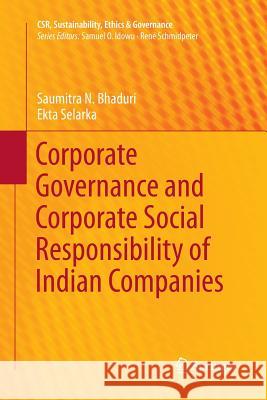Corporate Governance and Corporate Social Responsibility of Indian Companies » książka
topmenu
Corporate Governance and Corporate Social Responsibility of Indian Companies
ISBN-13: 9789811092848 / Angielski / Miękka / 2018 / 134 str.
Kategorie:
Kategorie BISAC:
Wydawca:
Springer
Seria wydawnicza:
Język:
Angielski
ISBN-13:
9789811092848
Rok wydania:
2018
Wydanie:
Softcover Repri
Ilość stron:
134
Waga:
0.22 kg
Wymiary:
23.39 x 15.6 x 0.84
Oprawa:
Miękka
Wolumenów:
01











